Happy Halloween!!
We have a winner of the #BooksBrewBoo giveaway. The lucky little goblin who will be receiving a Starbucks gift card + creepy poetry anthology is:
Congratulations, Traci!
I’ll be off soon to cavort with bats and sweet-talk cats, but first I wanted to share with you guys one last how-to: how to have the witchiest Halloween ever.
Start early. (Witches plan ahead.) Two and half months before Halloween begins, find the coolest, quirkiest, most amazing witch hat ever and fall in love, deciding then and there that you’ll be a witch this year.
At the very, very earliest we-are-really-stretching-it-here-let’s-be-honest-it’s-basically-just-pretend hint of autumn, snuggle in with your crafting bestie and decide you’re going to make a witch book. Upon deciding what exactly it will be/look like, brainstorm so many cool ideas that the project quickly expands to become an entire grimoire of witch books, plural, that will fill your mantel. Go overboard. (Witches go overboard.)
Spend many hours over the next free evenings and cozy Sundays crafting strange, beautiful, macabre books befitting the finest witch.
Start dreaming about what else will go on the mantel with them.
Become bewitched by an enormous, shockingly well-priced black tulle skirt online. Order it.
When a few of mushrooms pop up in your yard after a heavy rain, pluck them and hang them from twine in the back of your closet to dry for the next month and a half, figuring you can do something cool with them. (You’re definitely right.) Likewise, save the dead, blackened flower heads from those potted plants you accidentally murdered. (Woops.) Dry them too.
On October first, pull out all your decorations and have at it. Begin pulling things from around your house that look particularly witchy.
When the weather actually gets cool, go for a walk and commune with nature. Find those weird green bois d’arc fruits you’ve always been secretly smitten with. When your husband gets home, tell him you’re going to get witch apples. Laugh when he doesn’t even question you (go ahead and fall in love with him a little bit more, as you do), just picks you up and drives you with your cauldron to the spot you found them, where you gather a potful like a sneaky little thief.
Marvel at the kismet of washing your old green drinking glass that’s been in the guest shower for years, unused, at the same time that you find the tiny baby doll your dad once hung in fake spider web as a macabre Halloween decoration. Realize said baby doll fits uncannily under the glass, which happens to be the perfect shade of green. Assure your husband that it is not, in fact, watching him every time he walks across the room.
Convince your besties that your skirt, which has arrived in fluffy, splendiferous glory, is too amazing, and that it simply must be photographed on a very cold night as sunset turns to dusk to night. Bring a cape you made on a whim one evening from sheer curtains you’ve had folded in a box for five years. Get weird. Get witchy. Get scary. Touch the moon. Keep some secrets. Laugh a lot. Come away with dozens of super amazing photos, because your friends are the best friends.
Play an ongoing game of hide-the-severed-foot with your husband. Be hilariously surprised when it shows up, complete with cleaver, in your sock drawer, under the bed, inside his boot…
Arrange your mantel. Gather some of the already-cut vines from your garden and let them creep from the shadows of your grimoire. Light your candles, cast your spell, throw some glow on it.
Have over unsuspecting victims friends and enjoy a night of magnificent revelry.
Rest up. Enjoy your witch nails for three more days.
Spend a quiet, nigh-holy night reading spooky, lovely things. Stop often to smell the air, to write a poem, to dance in the moonlight. Hand out poison apples candy to tricky little children brave enough to approach your cottage, where they’re greeted by your two familiars, eyes aglow.
Stay up until the witching hour, then fall asleep one content little witch.
Have the happiest Halloween.


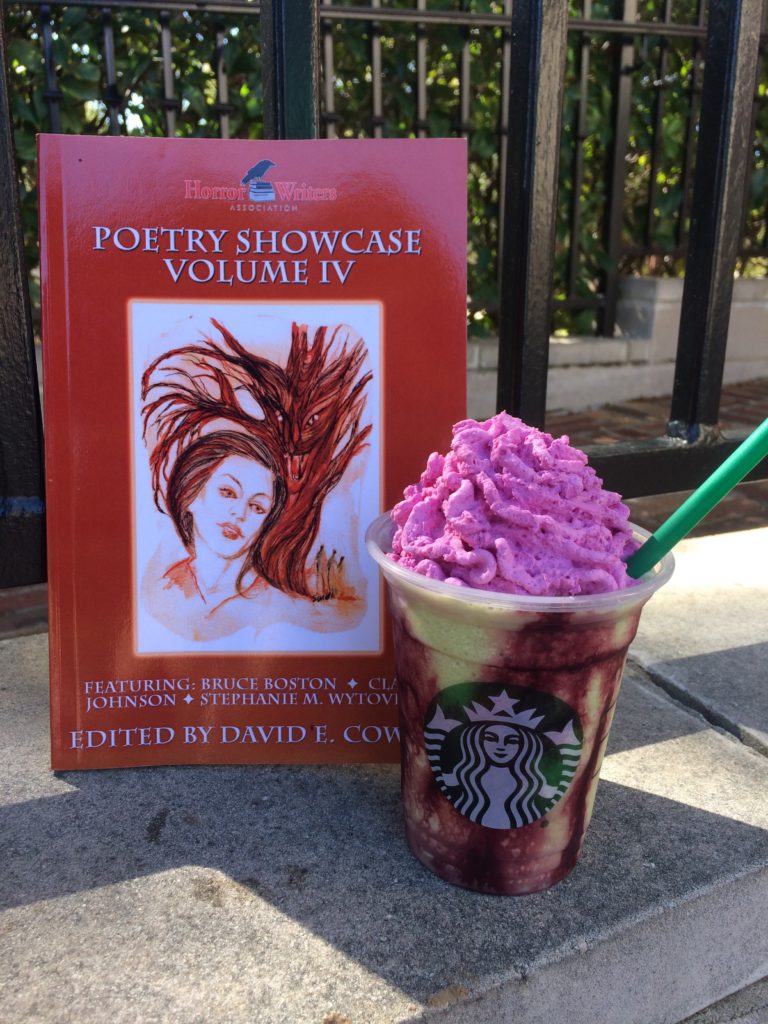

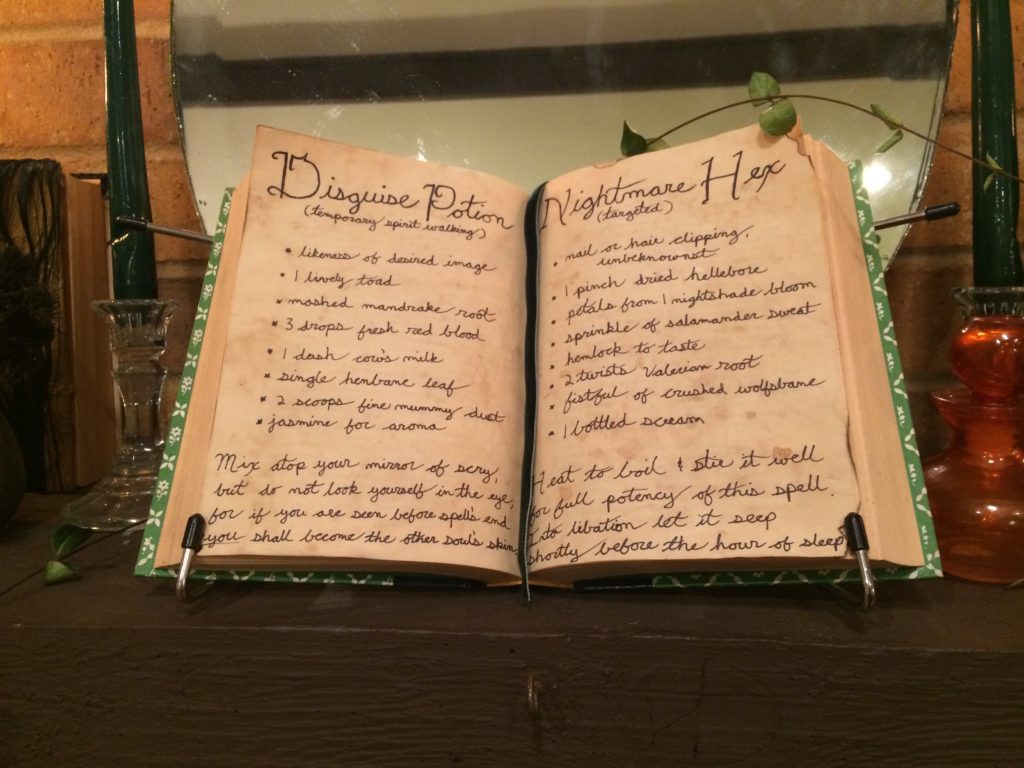

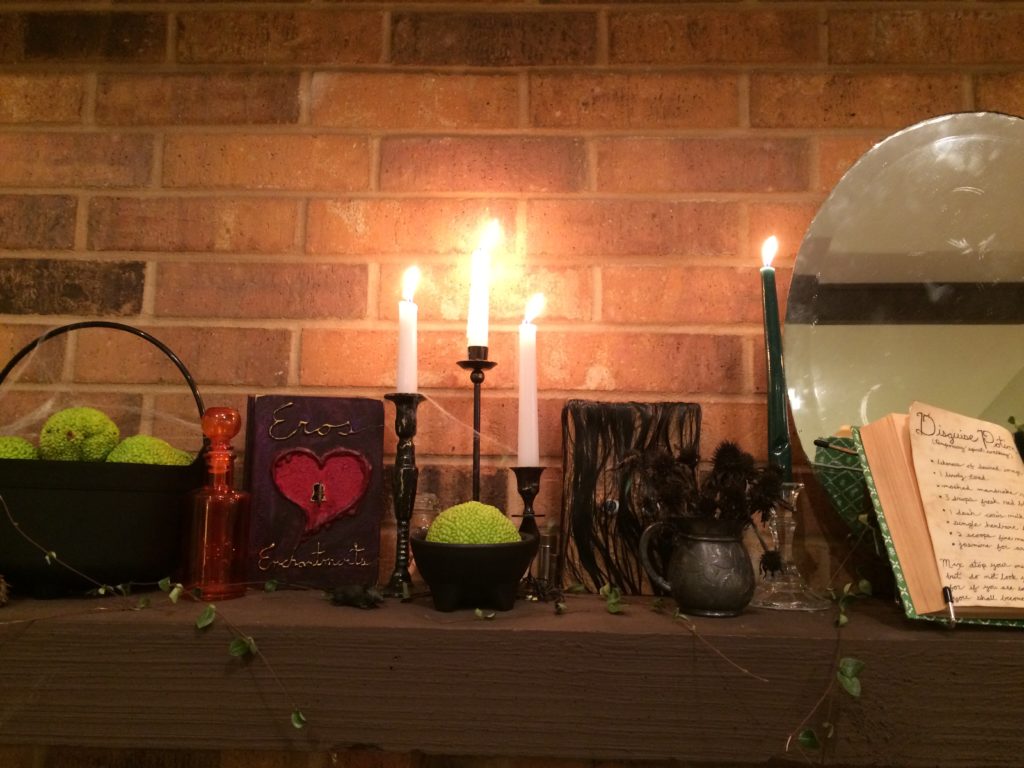
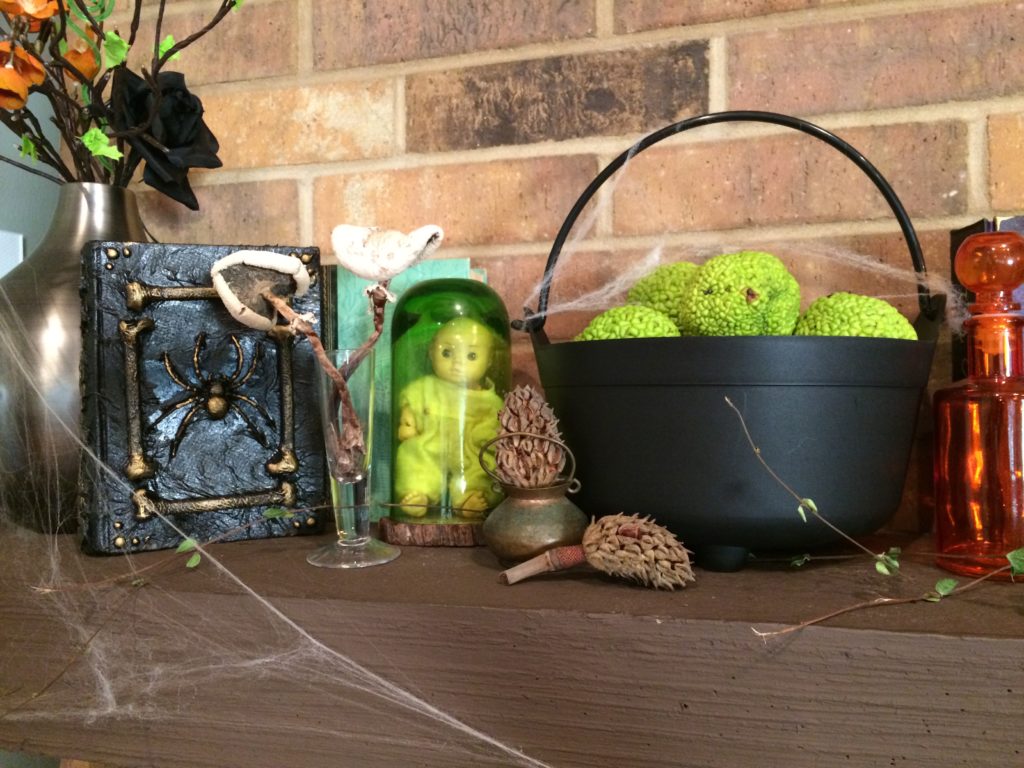

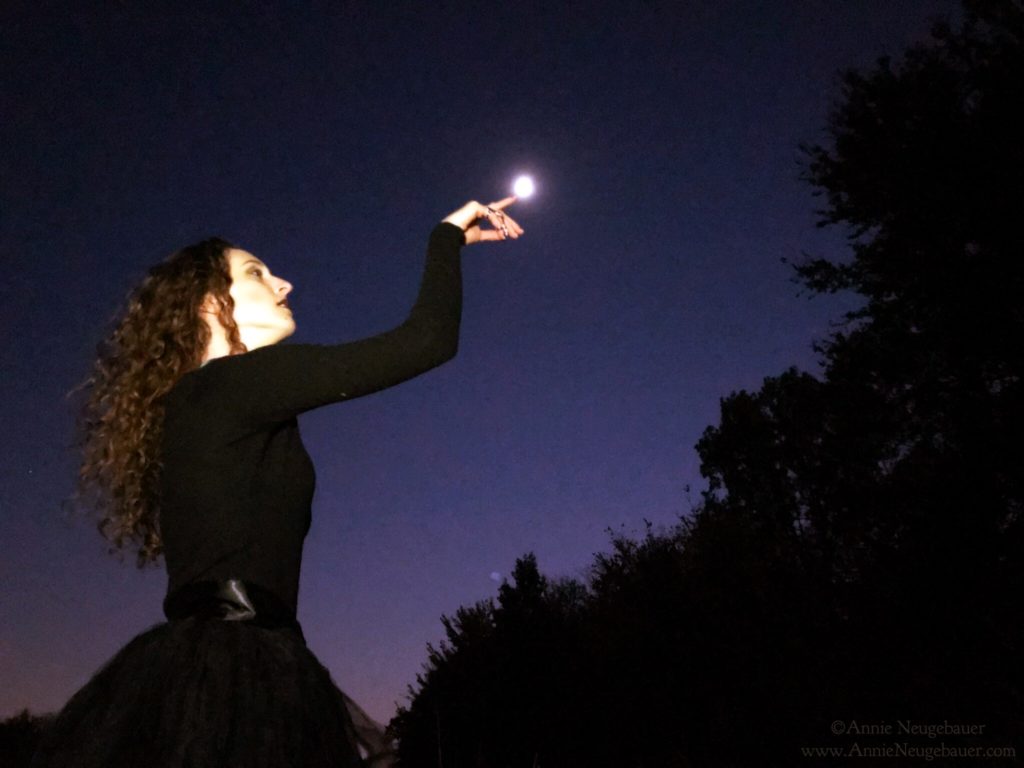

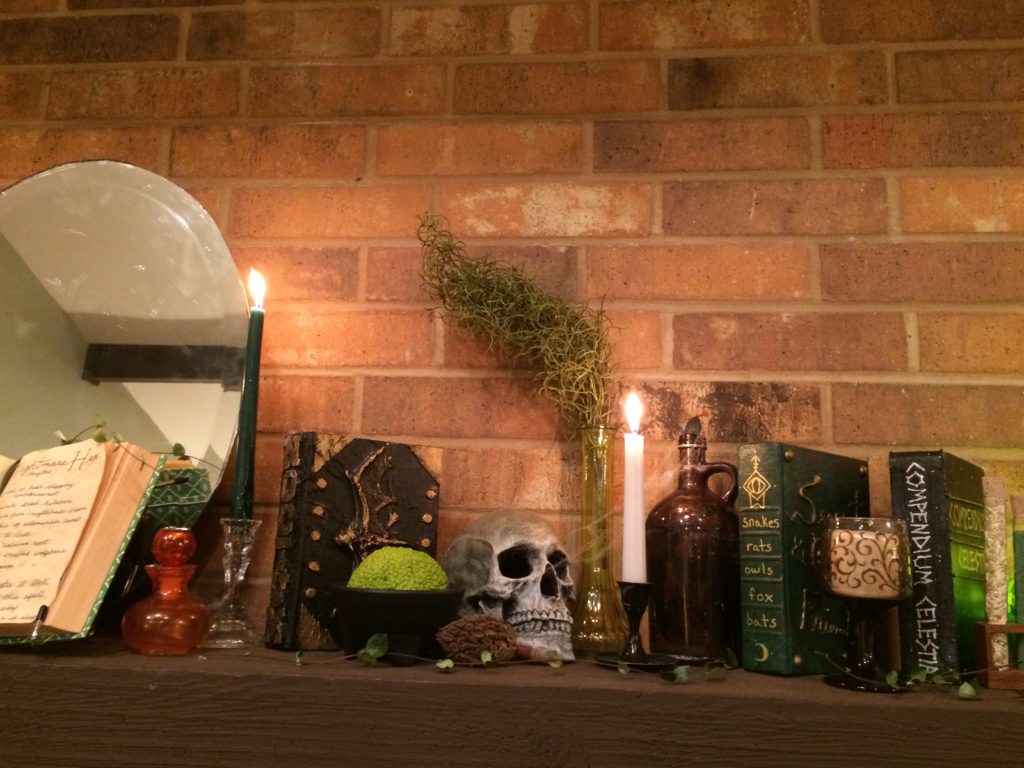


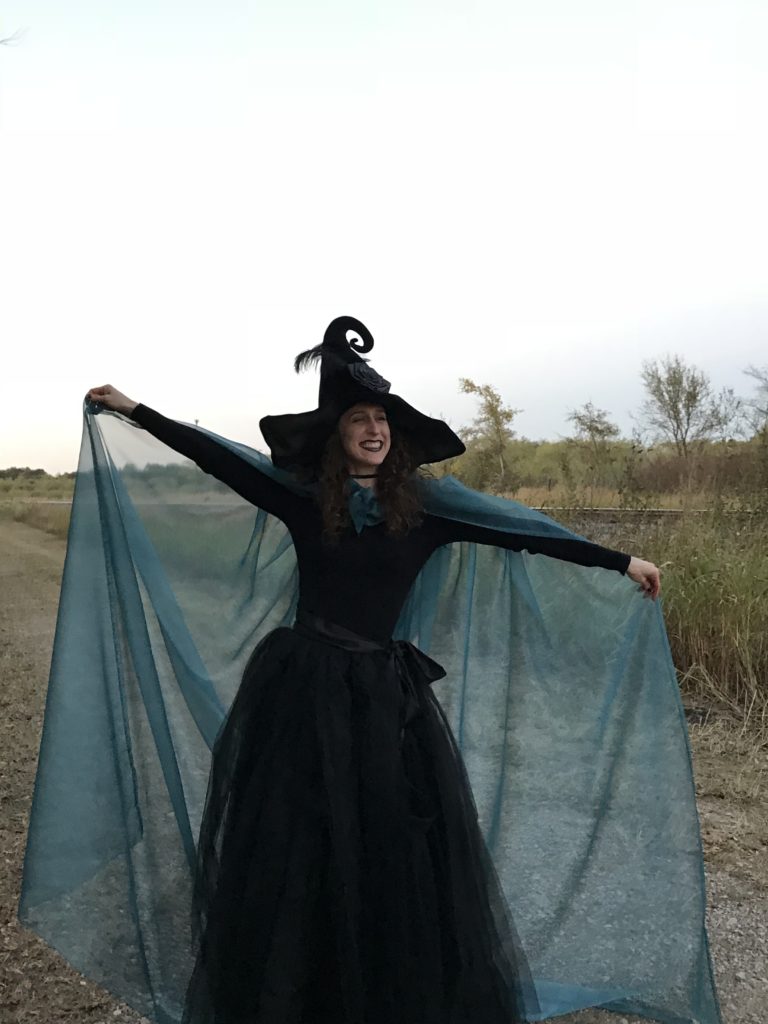
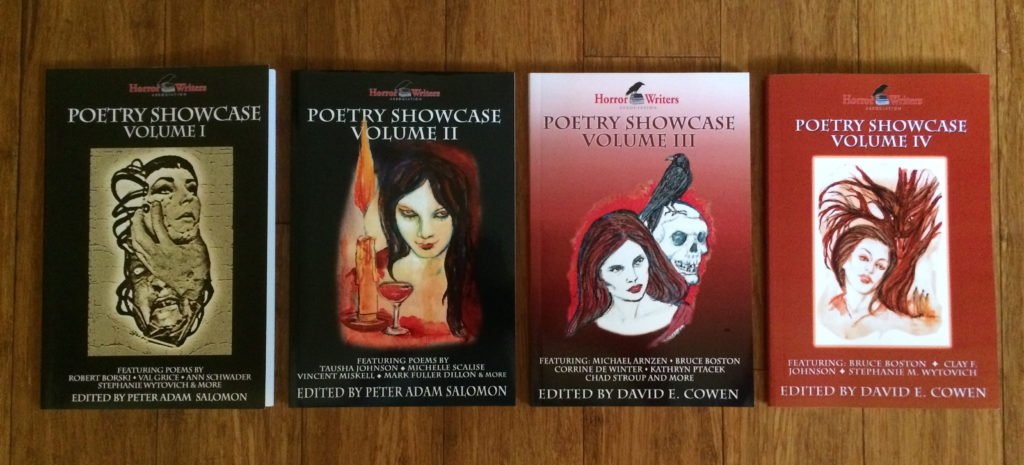
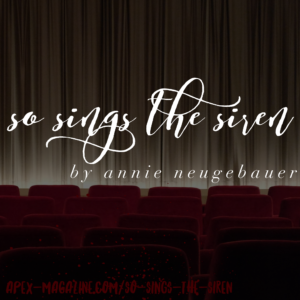




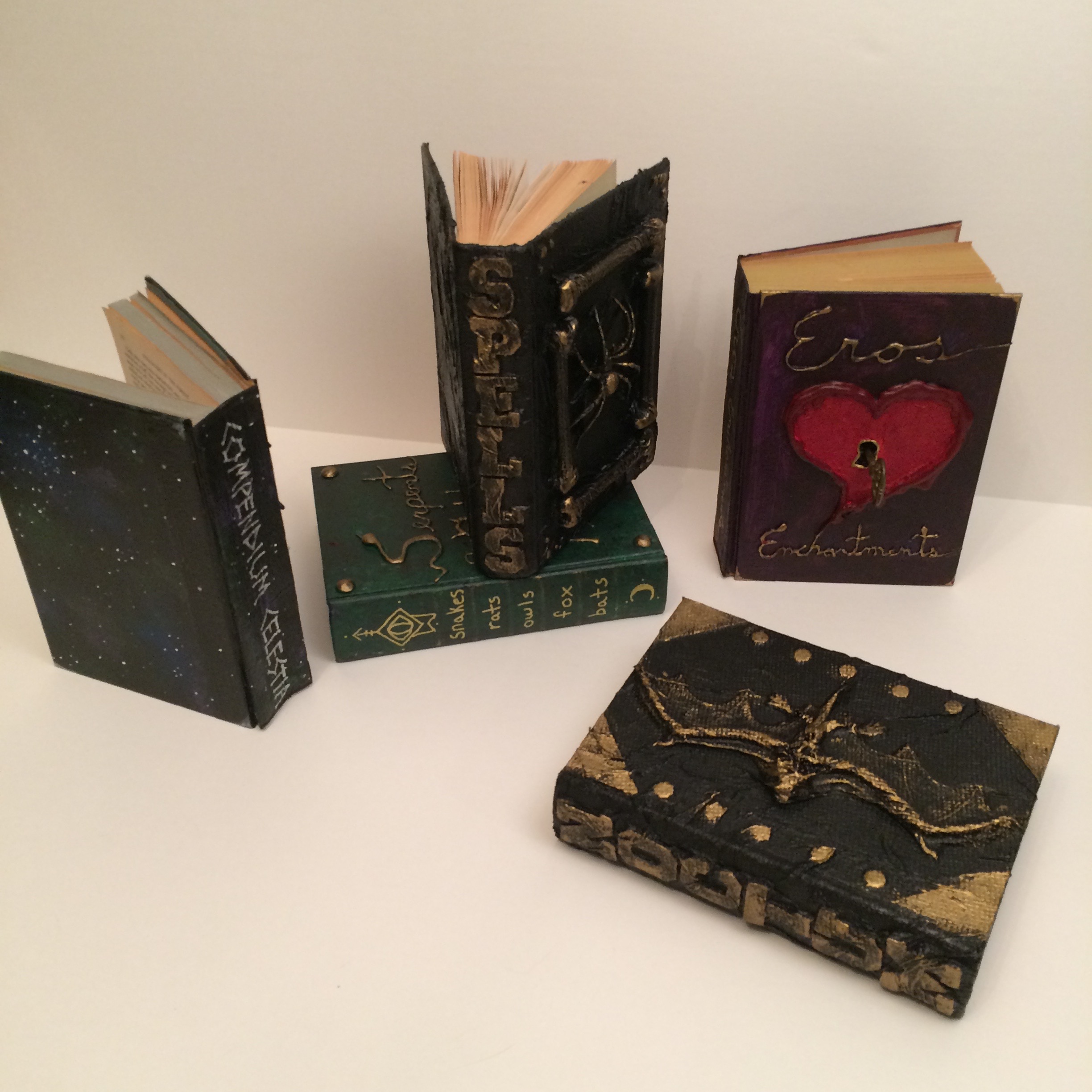
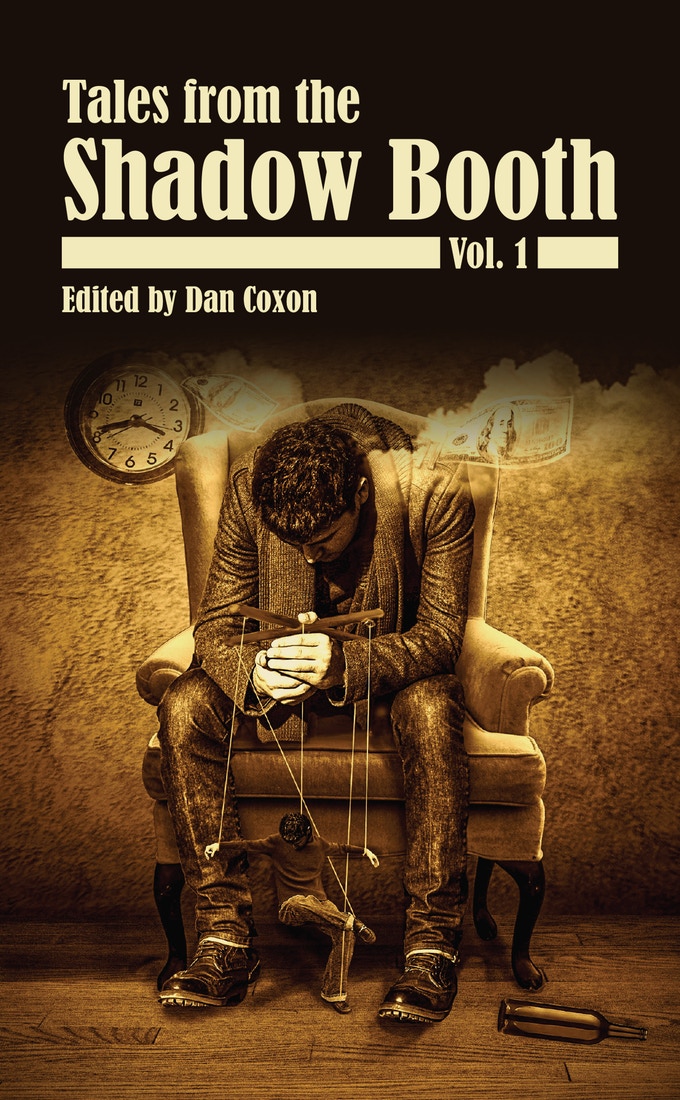 I do so love an interview, even more when it’s about horror and writing and my fantastically zombie-prepared hubby. As part of spreading the word about
I do so love an interview, even more when it’s about horror and writing and my fantastically zombie-prepared hubby. As part of spreading the word about  First things first, TODAY is release day for
First things first, TODAY is release day for 
 Really the only things I have going on that won’t count are my stories/poems themselves (though sharing them does) and commenting on my post for HWA’s Halloween Haunts, since that comes with its own giveaway (details will be in that post).
Really the only things I have going on that won’t count are my stories/poems themselves (though sharing them does) and commenting on my post for HWA’s Halloween Haunts, since that comes with its own giveaway (details will be in that post). A few other things of note. The Kickstarter mentioned above is for a new journal called
A few other things of note. The Kickstarter mentioned above is for a new journal called 




